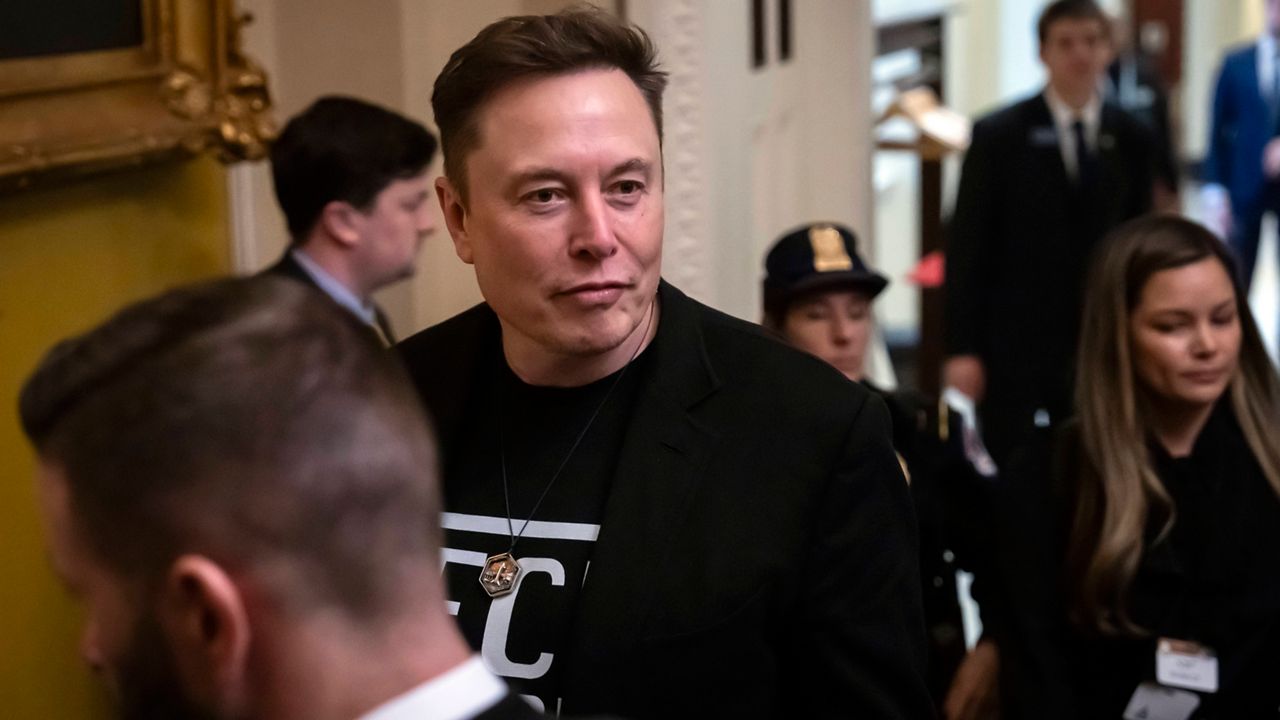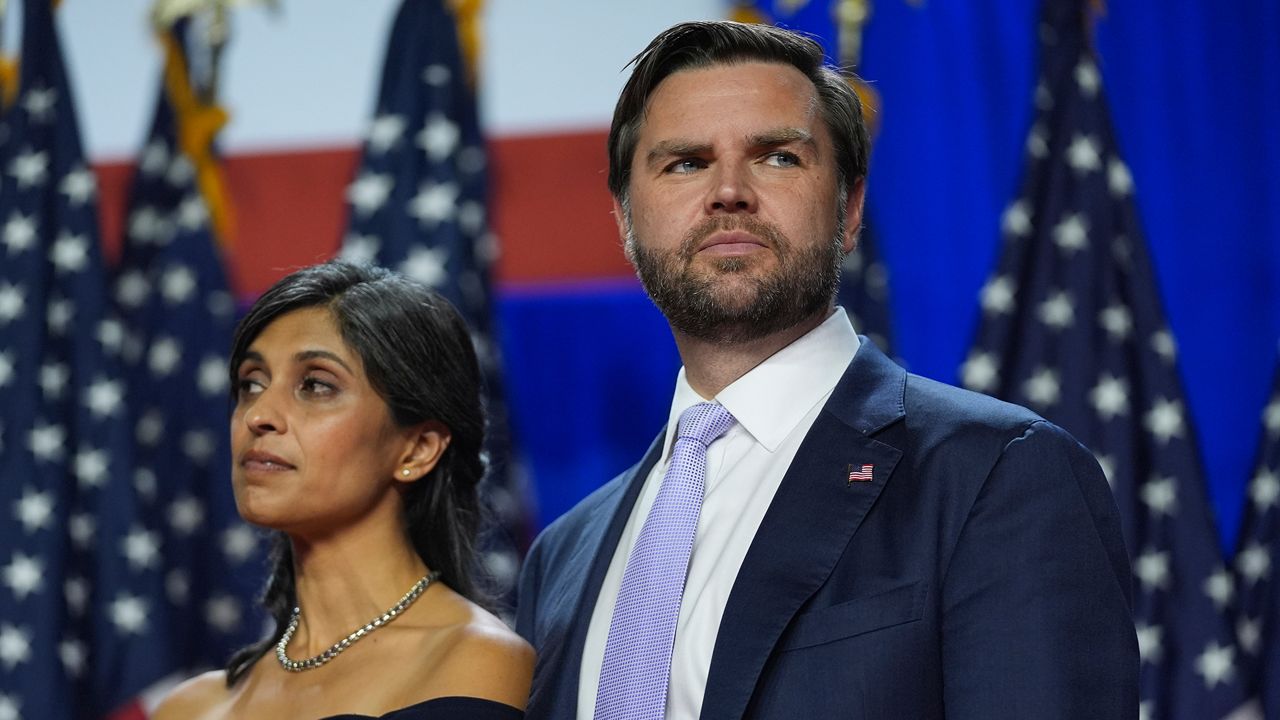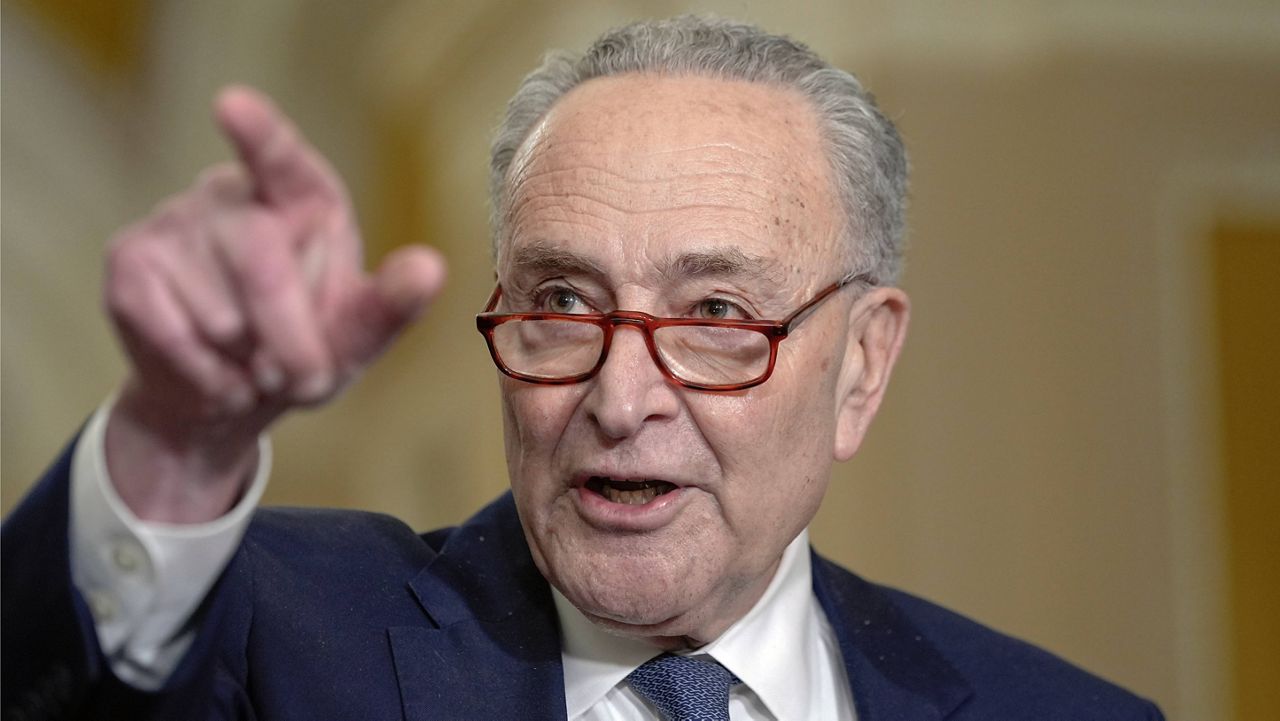Mitch McConnell announced Wednesday that he will step down as the leader of the Senate Republican conference, capping off his tenure as the longest-serving Senate party leader in U.S. history.
McConnell’s announcement not only caps off a milestone for the Kentucky Republican, but signals a changing of the guard in the Senate Republican caucus — a departure from the brand of conservatism founded by Ronald Reagan in favor of the populism of Donald Trump.
It was a point that he acknowledged in his remarks on Wednesday afternoon as he prepared to bid farewell to the power he’s wielded for nearly two decades. He reflected on his early time in the Senate, which “helped shape my view of the world,” particularly noting “the irreplaceable role we play as the leader of the free world.”
“It’s why I worked so hard to get the national security package passed earlier this month — Believe me, I know the politics within my party at this particular moment in time. I have many faults, misunderstanding politics is not one of them,” he joked. “That said, I believe more strongly than ever that America's global leadership is a central to preserving the shining city on a hill that Ronald Reagan discussed. As long as I'm drawing breath on this earth, I will defend American exceptionalism."
McConnell, who turned 82 last week, acknowledged that a recent family tragedy — the recent death of his wife Elaine Chao’s younger sister, Angela — offered him a moment of introspection.
“When you lose a loved one, particularly at a young age, there's a certain introspection that accompanies the grieving process,” he said. “Perhaps it is God's way of reminding you of your own life's journey, to reprioritize the impact of the world that we will all inevitably leave behind. I turned 82 last week. The end of my contributions are closer than I prefer.”
He also expressed his gratitude toward his wife, who served in the last two Republican administrations as labor secretary under George W. Bush and transportation secretary under Trump, as well as to Reagan, whose virtues and leadership he extolled.
“For 31 years, Elaine has been the love of my life,” he said. “And I'm eternally grateful to have her by my side.”
“My career in the United States Senate began amidst the Reagan Revolution,” he said. “Truth is when I got here, I was just happy everybody remembered my name. President Reagan called me Mitch O'Donnell. Close enough, I thought. My wife Elaine and I got married on President Reagan's birthday, Feb. 6. It's probably not the most romantic thing to admit, but Reagan meant a lot to both of us.”
On his longevity in the U.S. Senate, including rising up to become its leader for so long, McConnell said that if you told him four decades ago that he’d still be standing in the chamber, “I would have thought you'd lost your mind.”
“My goals when I was narrowly elected to the Senate back in 1984 were fairly modest: Do a good job for the people talking and convince them that by doing so, they might rehire me for a second term,” he said. “That was it. That was the plan. If you would have told me 40 years later, that I would stand before you is the longest-serving Senate leader in American history, frankly I would have thought you'd lost your mind.”
“I have the honor of representing Kentucky and the Senate longer than anyone else in our state's history,” he continued. “I just never could have imagined never could have imagined that happening.”
“After all this time, I feel good a thrill walking into the Capitol and especially on this venerable floor, knowing that we each of us have the honor to represent our states and do the important work of our country,” McConnell said. "But Father Time remains undefeated. I'm no longer the young man sitting in the back, hoping colleagues would remember my name.”
“To lead my Republican colleagues has been the highest privilege, but one of life's most under-appreciated talents is to know when it's time to move on to life's next chapter,” McConnell added.
McConnell's announcement comes after a series of health scares last year. He was hospitalized after a fall in March of last year, suffering a concussion and did not return to the Senate for several weeks. He also had a couple of incidents where he appeared to freeze up during news conferences last year. He vowed to stay in his position amid questions about his health.
Despite the fact that he’s stepping down as leader, he ended his speech by making clear that he’s “not going anywhere anytime soon.” He vowed to serve out the remainder of his term as Kentucky’s senior senator, which ends in January 2027.
“I'll complete my job my colleagues had given me until we select a new leader in November and they take the helm next January,” he pledged. “I’ll finish the job that people of Kentucky hired me to do as well, albeit from a different seat, and I'm actually looking forward to that.”
“I still have enough gas in my tank to thoroughly disappoint my critics and I intend to do so with all the enthusiasm with which they've become accustomed,” McConnell quipped.
McConnell finished his speech to a standing ovation from the chamber, as well as handshakes and hugs from Republicans, Democrats and independents alike.
"During my years in the Senate, Mitch McConnell and I rarely saw eye to eye when it came to our politics or our policy preferences," Senate Majority Leader Chuck Schumer, D-N.Y., one of the first to shake McConnell's hand after his speech, said in a statement. "But I am very proud that we both came together in the last few years to lead the Senate forward at critical moments when our country needed us," citing recent efforts to provide funding to Ukraine, passing COVID-19 relief and working to certify the 2020 election on Jan. 6, 2021.
“I know it’s been a difficult year for him and his family and I wish them the very best," he added.
In remarks after McConnell's speech, Maine Sen. Susan Collins said that his "tenure as leader will be remembered not just for his historic longevity, but also for his unparalleled devotion to this great institution."
"I also admire the leader for stepping forward when it wasn't popular to do the right thing for our country, and for our world," she added.
The Kentucky Republican leaves behind a powerful legacy, and big shoes to fill for whoever succeeds him in the role. He built a major super PAC, The Senate Leadership Fund, which has raised and spent hundreds of millions of dollars to back Republican candidates to bolster his conference.
He was also a thorn in the side of many Democratic presidents, including in 2016 when he blocked then-President Barack Obama’s nomination of Merrick Garland to fill the vacancy on the Supreme Court created by the death of Justice Antonin Scalia. McConnell called it one of his “proudest moments.” The seat would later be filled by Trump, who appointed Justice Neil Gorsuch to the bench.
McConnell also warned against efforts by Democrats to change the filibuster. In 2013, after Senate Republicans attempted to filibuster a number of President Obama’s nominees, then-Majority Leader Harry Reid, D-Nev., utilized the nuclear option to confirm most presidential appointments, but not Supreme Court nominees.
“You’ll regret this, and you may regret this a lot sooner than you think,” then-Minority Leader McConnell warned at the time.
Sure enough, in 2017, he utilized the “nuclear option” in 2017 to eliminate the 60-vote threshold for Supreme Court nominees, clearing the way for a simple majority to confirm Gorsuch.
But McConnell also proved invaluable to President Joe Biden on a number of key pieces of legislation, including his $1.2 trillion bipartisan infrastructure bill.
President Biden, who worked with McConnell for decades in the Senate, said Wednesday that he's "sorry to hear" that he's stepping down from leadership.
"I trusted him, we had a great relationship and we fought like hell," the president said. "But he never, never, never misrepresented anything. I’m sorry to hear he’s stepping down.”
"American Democracy is based on elected representatives coming together and bridging their different points of view to find common ground on behalf of the American people," Biden said in a statement on Wednesday. "I’m proud that my friend Mitch McConnell and I have been able to do that for many years, working together in good faith even though we have many political disagreements. During his many years of leadership, we could always speak with each other honestly and put the country ahead of ourselves."
Biden went on to hail the accomplishments that McConnell helped him deliver, including the infrastructure bill and the CHIPS and Science Act, a bill aimed at boosting semiconductor production and increasing competition with China.
"America is now being rebuilt by the biggest infrastructure law in nearly 70 years," Biden said. "We’re making critical investments so our economy can outcompete China. We’re standing up for our values and our most urgent national security interests in the world because of it. America is making tremendous strides towards curing cancer. There is nothing America cannot do when we do it together.
"Mitch has lived the American dream, overcoming polio and going on to become the longest-serving Senate leader in American history," he concluded. "Jill and I wish the best to Mitch and Elaine."
With Trump, McConnell reshaped the federal judiciary, including appointing three conservative justices to the nation’s highest court during the former president’s sole White House term, and instituted a sweeping overhaul of the country’s tax code in 2017.
But the relationship between the two men soured, particularly in the wake of the Jan. 6, 2021, attack on the U.S. Capitol. McConnell laid the blame for the insurrection squarely at the feet of Trump, saying that his “actions preceding the riot were a disgraceful dereliction of duty” — though he voted against convicting him during his second impeachment trial, arguing that he was ineligible because he was already out of office.
“There is no question that President Trump is practically and morally responsible for provoking the events of that day,” McConnell said in February 2021. “The people who stormed this building believed they were acting on the wishes and instructions of their President.”
Recently, questions have arisen about if and when McConnell might endorse Trump, as much of the Senate GOP leadership already has.
“He’ll probably end up endorsing me,” Trump said at a recent Fox News town hall. I don’t know that I can work with him. He gave away trillions of dollars that he didn’t have to, trillions of dollars. He made it very easy for the Democrats.”
Trump has referred to the Kentucky Republican as an “old crow” and referred to his wife Chao, who served in his administration, as “Coco Chow” and McConnell’s “China-loving wife.”
McConnell’s last vote before announcing his retirement was against a procedural motion to advance the nomination of Julie Simone Sneed, President Joe Biden’s pick to serve on the U.S. District Court for the Middle District of Florida. The motion advanced despite the Kentucky Republican’s opposition.
The Associated Press contributed to this report.









